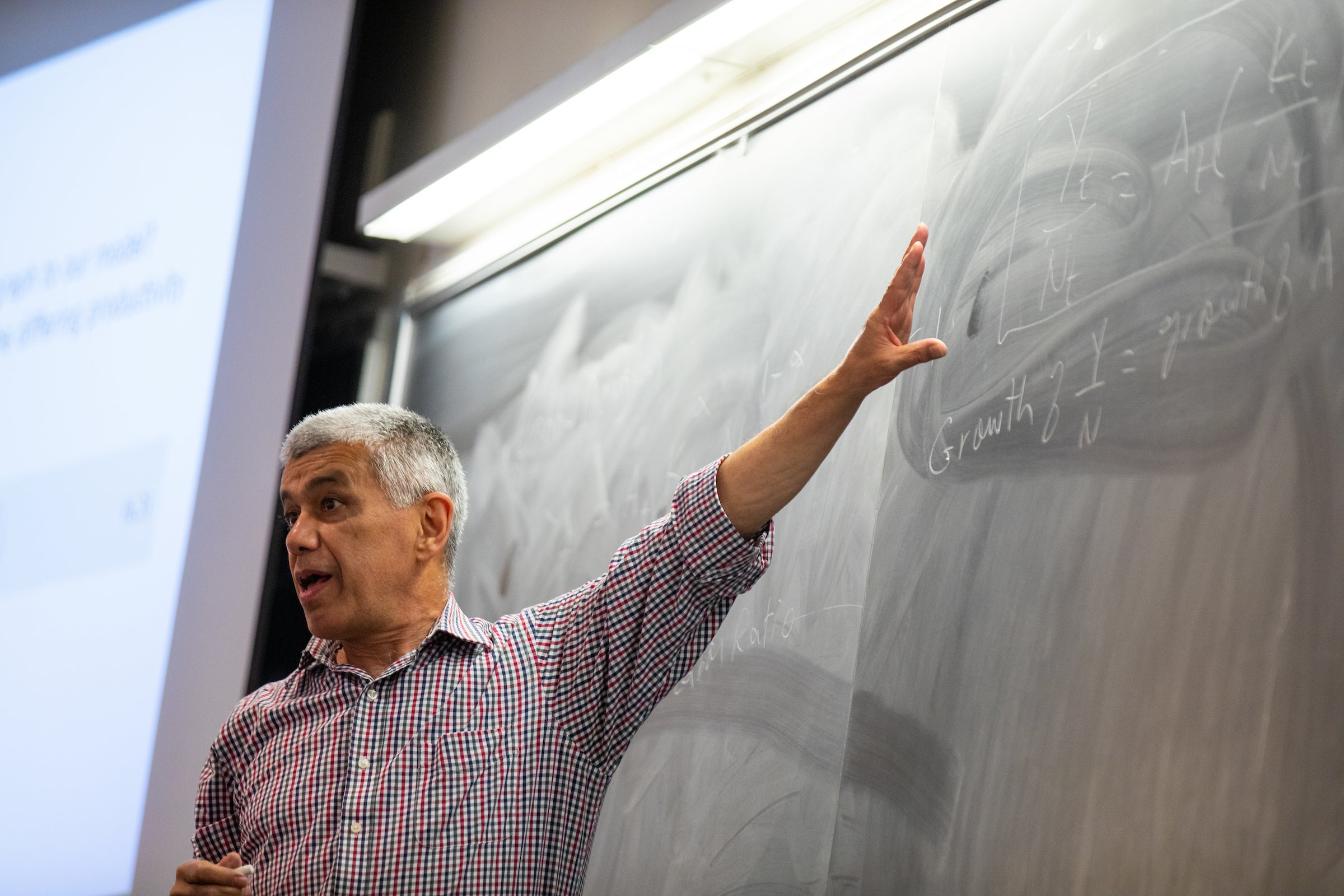Undergraduate Program

Contacts
Mr. Thomas Lewis serves as the Undergraduate Coordinator. Please contact him first with any administrative queries related to a Major or a Minor in Economics, Study Abroad, and Transfer Credits. His office hours are Mondays, Thursdays and Fridays from 9:30-11:30 am and 3:30-5:00 pm in ICC 580-a.
Prof. Behzad Diba serves as the Director of Undergraduate Studies. His office hours are on Tuesdays from 4 to 5pm, and on Thursdays and Fridays from 3:30 to 4:30pm.
Opportunities
The Department of Economics maintains a list of opportunities that may interest undergraduate economics students, including: jobs, internships, research positions, and publication outlets.
Click here for the latest announcements [this requires that you are signed in with your Georgetown NetID].
Additional information related to jobs, internships, and career events on campus can be found on Handshake platform maintained by the Cawley Career Education Center.
Research
Courses
Spring 2006 Electives
ECON 4059 – Game Theory
ECON 4081 – Labor Economics
ECON 4408 – Economics of Information
ECON 4411 – Sports Economics
ECON 4444 – The Economics of Immigration
ECON 4467 – Macroec Crises/Debt Sustainab
ECON 4468 – Topics: Monetary Policy
ECON 4487 – Empirical Application PoliEcon
ECON 4491 – Development Impact Evaluation
ECON 4961 – Senior Thesis Seminar
To bolster quantitative aptitude, the Department of Economics offers ECON 1357 – Essential Mathematics for Economics. This course covers mathematical concepts that will be used in economics courses at the intermediate and advanced levels. The course begins with a review of functions in economics (e.g., demand and supply). We then turn to calculus, with a focus on optimization (e.g., choosing the amount of output to maximize your profit). We next consider optimization of functions of two variables (e.g., choosing the quantities of two inputs to maximize your profit). We subsequently study optimization subject to one or more constraints. An example occurs when you maximize your well-being while facing a budget constraint. The course concludes with an introduction to linear algebra, which studies linear equations with several variables. The concepts will be applied to economic questions, and in-class problem-solving will be emphasized.
The prerequisite is ECON 1001 or 1002 or 1003. Students who have not taken MATH 1350 (or the equivalent), and who are concerned about their foundation in mathematics, are encouraged to take the Math department’s calculus readiness assessment. If the recommendation is MATH 1350, you can proceed to ECON 1357. If the recommendation is MATH 1310, you are advised to take that course before enrolling in ECON 1357.
Students who have already taken MATH 1360 should consider taking another MATH course instead of ECON 1357. The same advice applies for students who plan to take MATH 1360 concurrently with ECON 1357.
Majors
Current Academic Policies and Procedures can be found in Undergraduate Bulletin.
Noteworthy change in Academic Regulations (3. Additional Limits and Minimums) concerns the doubling up rule: starting in 2023-24, students will be allowed to take two courses in Economics in the same semester beginning in sophomore fall.
- Credit for Courses Outside GU Economics Department: AP credit, Transfer credit, Electives, and Study Abroad.
- Learning Goals of the Undergraduate Program in Economics details the expectations for our students.
- Writing in the Major describes our integrated writing requirement for economics majors.
Major Requirements
- Economics (COL)
- Political Economy (COL)
- International Economics (SFS)
- International Political Economy (SFS)
Minor Requirements
- Minor in Economics (COL, MSB, NHS, SFS)
Graduating with Honors
- Economics Majors (COL)
- SFS-IECO (SFS)
- SFS-IPEC (SFS)
Links
- Undergraduate Research in Economics suggests advice for getting started conducting research of your own in Economics
- Careers for Economists and Economics after Georgetown advises those pursuing a career in Economic Research and continuing to graduate school
- Tutoring for Undergraduates details the schedule of student tutors
- Application for a TA Position has information on how to become a teaching assistant for the Economics Department
- Undergraduate Advisors list the advisors for PECO, IECO and IPEC
- Economics Honor Society (Omicron Delta Epsilon)
